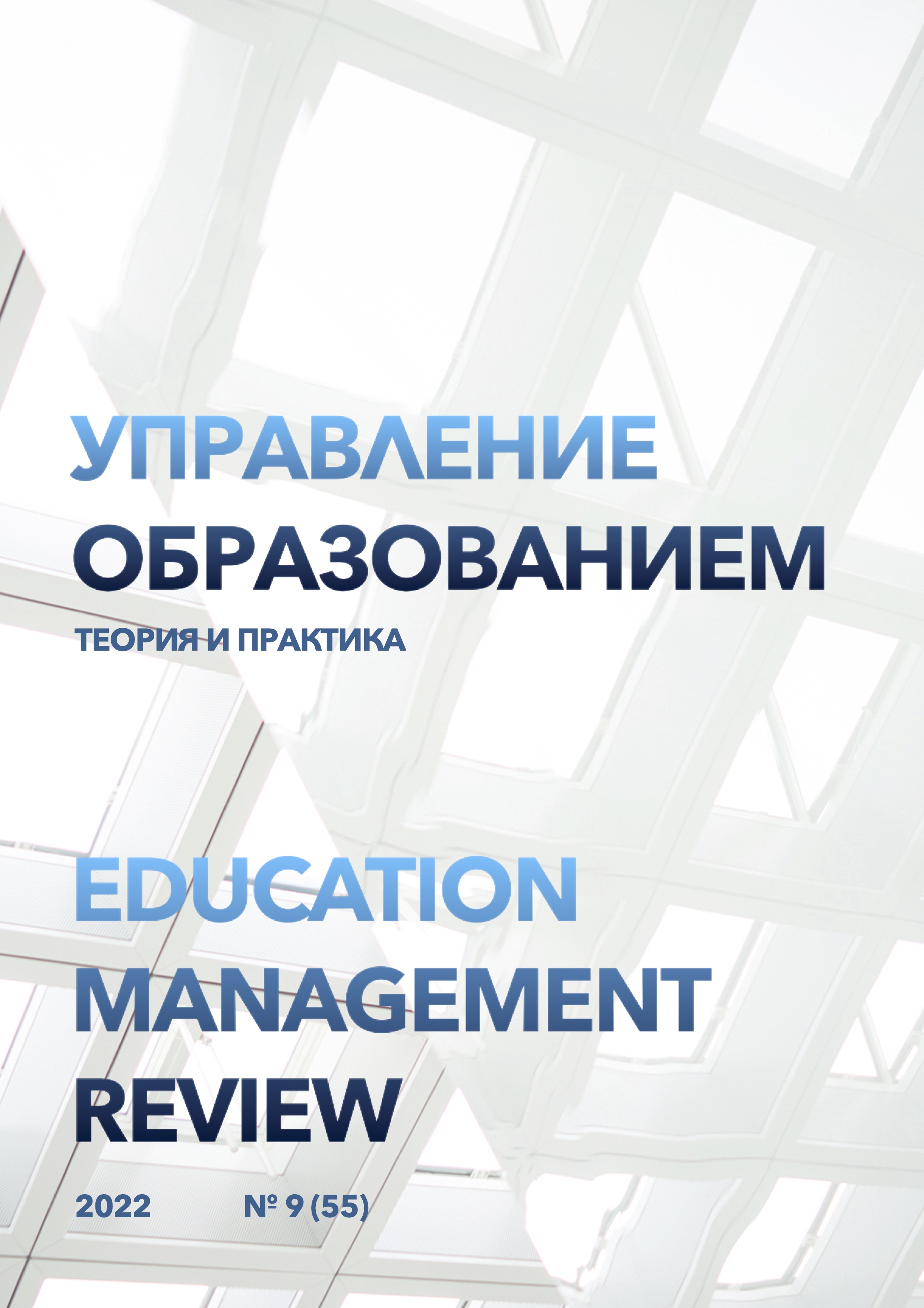Possibilities of modeling the management process at oilfield service enterprises
DOI:
https://doi.org/10.25726/z2948-8027-5443-lKeywords:
инновационные формы, менеджмент, управление образованием, системаAbstract
The State, as the main lever of the political social system, carries out activities in the field of education management. It is the state power that directs the main trajectories of the development of the educational system through the activities of established bodies and institutions that act as a single and integral mechanism of state power. Mechanisms of public administration –a management system consisting of specific means of state influence on the objects of management, which are based on clearly defined principles and approaches. During the interpretation of the essence of public administration as an independent activity, it is necessary to determine the elements of state power that can exercise an executive and administrative character in the process of regulating various spheres of activity, in particular educational. The organizational and functional structure of the state administration of education regulates the establishment of relationships between individual management bodies in order to effectively function and achieve the set results. Education management as a purposeful activity involves the use of the most effective forms and methods of management. The complexity and versatility of management processes determine the development of the process of modernization of educational management factors, including changes in the socio-economic development of the state, the gradual development of management science, understanding and implementation of trends in foreign management experience. As a result of the search for the best ways to use resources to achieve the priorities of public policy, Desmond Keeling proposed to introduce the concept of "public administration". Now public administration reflects the general system mechanism, in which subsystems and elements function and interact, in particular, political guidelines, regulatory and legal regulation of activities, procedures that are mainly funded by the state and local self-government bodies, organizational and managerial structures that are responsible for the administration of activities in public relations and the higher education system, such as a component at the national and local levels. The public administration of the higher education system is carried out in the context of the events in society, the real socio economic, political and cultural conditions in which the state is currently located.
References
Андреева Т.Е., Гаранина Т.А., Рыжко А.Н. Управление знаниями и интеллектуальным капиталом в российских промышленных компаниях. Результаты исследования. СПб.: Высшая школа менеджмента, 2015. 35 с.
Вихарева О.Н., Сокольник И.В. Оценка качества услуг высшего профессионального образования: кластерный подход // Теория и практика общественного развития. 2018. № 5. С. 249-252.
Клюев А.К., Трмилин О.Б., Фадеева И.М., Томилин О.О. Управление университетом: итоги трансформации // Университетское управление: практика и анализ. 2018. № 1. С. 93 - 104.
Лунев А.Н., Пугачева Н.Б., Терентьева И.В. Методологические основы опытноэкспериментальной работы как компонента исследований проблем профессионального образования // Современные проблемы науки и образования. 2015. № 1-2. С. 132.
Ма Хуатэн, Мэн Чжаоли и др. Цифровая трансформация Китая: Опыт преобразования инфраструктуры национальной экономики. М.: Альпина паблишер, 2019. 250 с.
Маличенко И.П. Управление знаниями как эффективный механизм формирования непрерывной системы обучения и развития персонала в организации // Вестник НГУЭУ. 2016. № 1. С. 174 - 188.
Немова О.А., Медведева Т.Ю. Свобода профессионального выбора и профориентация: ренессанс дикого капитализма или шаг вперед? // Азимут научных исследований: педагогика и психология. 2019. №2 (27). Т.8. С. 172-175.
Резникова О.С., Межиба Е.Ю. Роль управления знаниями в организации //Приволжский научный вестник. 2017. № 4. С. 83 - 85.
Селиванова Ю.В., Склярова Т.В. Личностное самоопределение студентов с инвалидностью: социально-психологический анализ факторов и механизмов // Вестник Мининского университета. 2020. Т. 8. № 2 (31). С. 8.
Фурсов А.Л. Профессиональная ориентация - от образовательной услуги к образовательной программе // Профессиональная ориентация. 2019. №1. С. 7-10.
Шпак Г.Б., Бондаренко Т.Н. Управление современным вузом: проблемы и перспективы развития // Вестник ХГУЭП. 2019. № 3. С.5-11.




